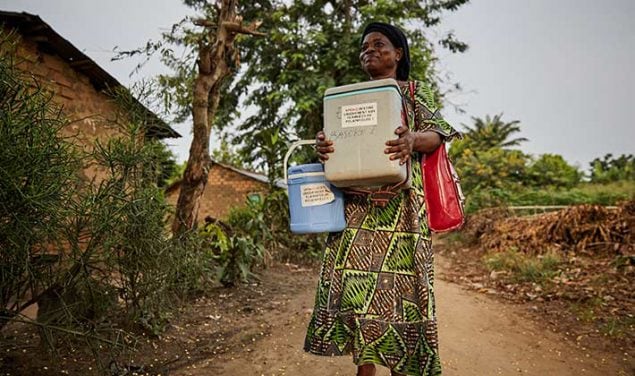About STOP Program
Updated May 26, 2022

The STOP Program recruits and trains international public health consultants and deploys them to countries around the world to strengthen national immunization surveillance programs, support supplemental immunization activities, respond to disease outbreaks, and help support polio eradication. The program is run by the Centers for Disease Control and Prevention (CDC) in collaboration with the World Health Organizationexternal icon (WHO) and United Nations Children’s Fundexternal icon (UNICEF).
History of STOP
The STOP Program began in 1998 as part of the Global Polio Eradication Initiativeexternal icon (GPEI). The first STOP team had 25 participants. Since then, STOP has recruited, trained, and deployed over 2,200 consultants, serving on over 4,900 assignments in 80 countries across all six World Health Organization (WHO) regions (Africa, the Americas, South-East Asia, Europe, Eastern Mediterranean, and Western Pacific).
In the first years of the program, the primary focus of STOP was to help advance progress toward polio eradication. Early STOP consultants worked to strengthen acute flaccid paralysis surveillance, support polio national immunization days, and assist with polio case investigations and follow-up. Though polio eradication is still a key priority for the STOP Program, current STOP consultants also support detection and control efforts for other vaccine-preventable diseases (VPD), such as measles, rubella, yellow fever, tetanus, and cholera.
Since 2018, I’ve participated in 20 campaigns against polio in more than 10 provinces in DRC. I support provincial health coordination to plan and successfully implement immunization activities.
STOP Helps Build and Sustain Immunization Capacity Within Countries
In the countries where they work, STOP consultants build local capacity to strengthen immunization systems and VPD surveillance. Key areas of focus include:
- Vaccination activities to mitigate and contain outbreaks of VPDs
- Active and passive surveillance
- Health education and communication
- Immunization policy guidance
- Outbreak response activities
- Data management and analysis
- Community engagement
- Social mobilization
STOP consultants have an opportunity to gain international public health leadership experience, while making critical contributions to polio eradication and other VPD elimination and control efforts in countries around the world. STOP can also be a valuable career advancement opportunity, and many alumni secure positions in global public heath institutions including non-governmental organizations and ministries of health upon completion of their assignment.
If you are interested in becoming a STOP consultant, read more about how to apply.